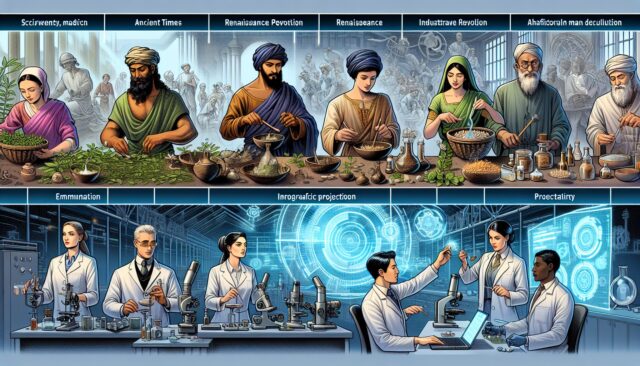The pharmaceutical industry plays a crucial role in the development and distribution of medicine. Over the years, it has revolutionized healthcare by constantly innovating and introducing new drugs to treat various diseases and conditions.
The industry has come a long way since its early days of producing simple remedies and herbal medicines. Today, it is a multi-billion dollar industry that invests heavily in research and development to create new and improved medications.
One of the key advancements in the pharmaceutical industry is the use of technology in drug discovery and development. With the help of advanced computer modeling and genomic research, scientists are able to develop more targeted and personalized treatments. This has led to significant breakthroughs in the treatment of cancer, autoimmune diseases, and rare genetic conditions.
Another significant development in the industry is the shift towards biologic drugs. These are derived from living organisms and have proven to be effective in treating complex diseases like rheumatoid arthritis and multiple sclerosis. Biologics have opened up new possibilities in medicine and have improved the quality of life for millions of patients worldwide.
Despite the advancements in the industry, the pharmaceutical sector also faces challenges such as increasing regulatory hurdles, rising production costs, and the need to balance innovation with affordability. Critics argue that some companies prioritize profit over patient well-being, leading to high drug prices and limited access to life-saving medications.
To address these challenges, the industry is focusing on initiatives such as value-based pricing, which links the price of a drug to its clinical benefits. This helps ensure that patients have access to effective treatments without breaking the bank. Additionally, the rise of generic drugs and biosimilars has increased competition in the market, driving down prices and improving affordability.
In conclusion, the pharmaceutical industry has made great strides in revolutionizing medicine and improving healthcare outcomes. With ongoing advancements in technology and research, we can expect even more innovative treatments and therapies in the future. It is imperative for industry stakeholders to work together to ensure that patients have access to safe, effective, and affordable medications that can improve their quality of life. Through collaboration and a commitment to patient-centric care, the pharmaceutical industry can continue to make a positive impact on global health.
